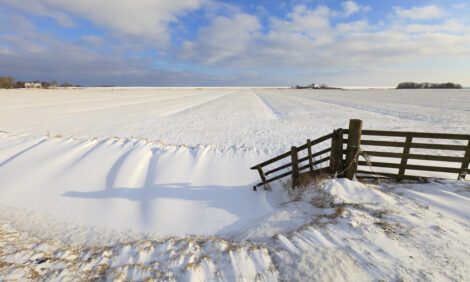



Europe Dips into Pocket Again to Manage Russian Retaliation
EU - The price tag of Russia’s agricultural imports ban grew this week with the release of €28 million to some of Europe’s worst hit nations.Baltic States farmers, who had the funding confirmed on Wednesday, have been the most exposed to Russian sanctions, seeing milk prices, along with other northern neighbours, slump 30 per cent.
These were European Commissioner Phil Hogan’s justifications for the funding package at the announcement on Wednesday.
He said dairy farmers are entering liquidity issues under “exceptional circumstances”.
Earlier, prolonged lobbying, from affected countries and pan-european farm body Copa-Cogeca, sent a clear message to Commissioners that food producers hurt by the sanction urgently need aid.
Speaking in September, Estonia’s agriculture minister said emergency aid was “necessary” and emphasised the importance of market controls, such as private storage measures.
It was for suspending private storage aid that Commissioners came under fire earlier this month, a measure brought back into focus by Copa milk chairman, Mansel Raymond this week.
Recently re-elected to the role, Mr Raymond said pressure needs to be alleviated from the dairy market.
He added: “The scheme was suspended early even though 50, 000 tonnes still remain to be used.”
“Private storage aid should still be open for cheese for countries severely affected by the ban.”
Striving for alternative solutions to Russia, Estonian minister Ivari Padar met with Poland’s ambassador in October to flesh out plans to promote products from the region.
In Finland, the extent of Russia’s importance to Finnish markets was stressed by concerned ministers in August.
Summarising lost Russian custom, Finnish agriculture minister Petteri Orpo said: “Russia is our food industry's main export area.
“Dairy products account for about 87 per cent of our exports to Russia as regards the products on the list of banned imports.”
Meanwhile, a strong production year complicates farmer outlooks further as businesses look to avoid super-levies for over production and suffer downwards pressure on milk prices from some buyers criticised for profiteering on the market situation.
Falling milk prices globally, as signified by a further 3.1 per cent drop on the Global Dairy Trade, and increasing product on the EU market could cripple businesses.
Milk prices have slipped 15 per cent in Spain, with the Small Union of Farmers and Ranchers blaming low-prices in France, Germany and Holland.
It called for “exceptional measures” from the Commission.
Michael Priestley
News Team - Editor
Mainly production and market stories on ruminants sector. Works closely with sustainability consultants at FAI Farms



